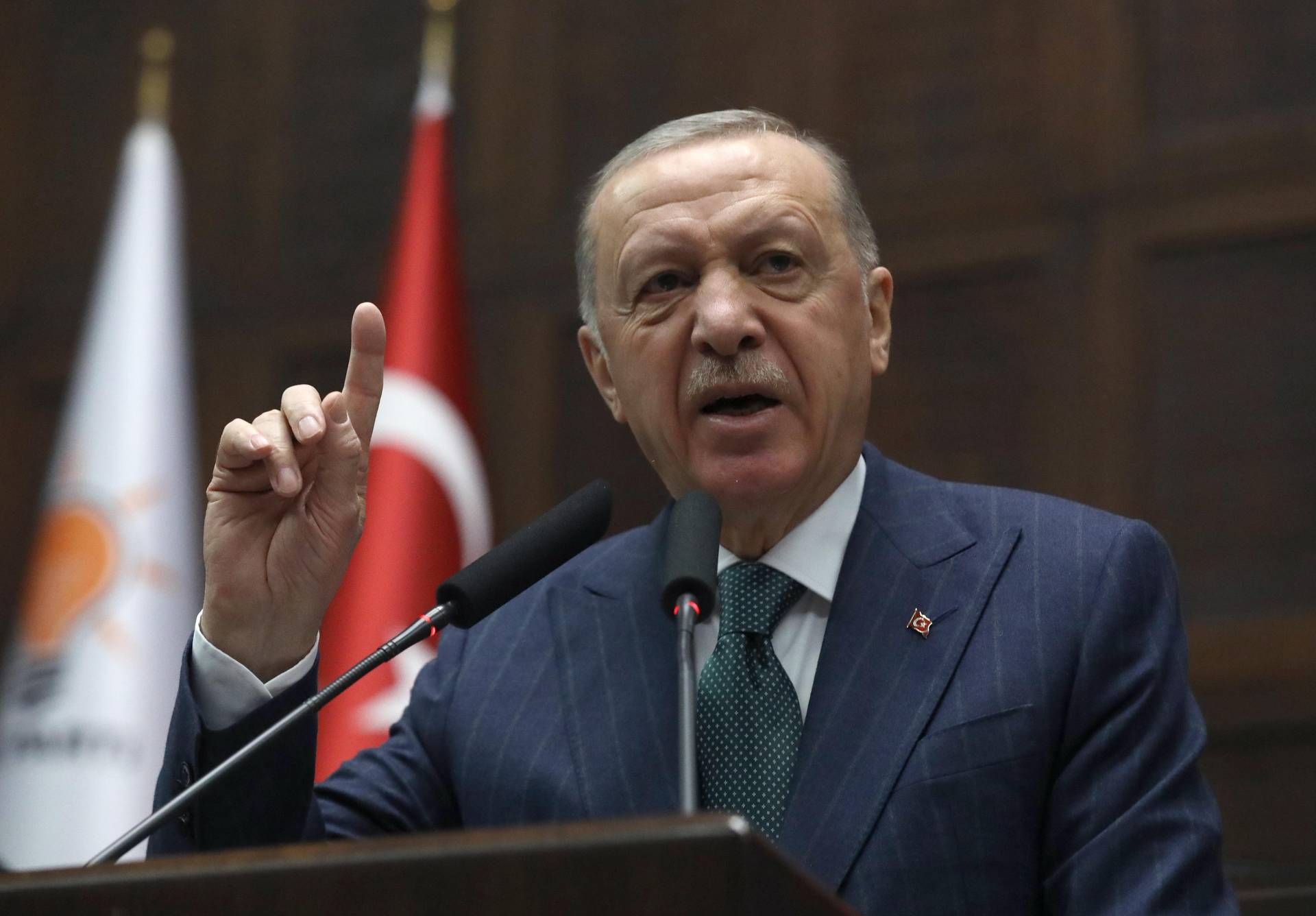Ankara “has every reason to be satisfied”. AND “Syrian rebels’ offensive strengthens Turkey’s geopolitical influence”. Of a US ally, a member of NATO, who was in the past the main supporter of the armed revolt against the Syrian leader Bashar al-Assad. 13 years have passed since that rebellion, which exploded after the 2011 anti-government protests suffocated by repression and degenerated into a bloody conflict, the escalation in Syria sees Hayat Tahrir al-Sham (Hts) and allied armed factions protagonists of a rapid advance. They arrived at the gates of Homs and talks on Syria between Iran and Russia are expected to be held today in Doha, Qatar – supporters of Assad – and Türkiye, while yesterday the Foreign Ministers of Iraq, Iran and Syria met in the Iraqi capital Baghdad.
Erdogan’s message to Assad
“We launched an appeal to Assad to talk together about the future of Syria, but unfortunately we did not have a positive response to this invitation – says Turkish leader Recep Tayyip Erdogan in statements released by Anadolu Agency – Idlib, Hama, Homs and certainly Damascus. This opposition march continues. And we hope it continues without incident.”
Erdogan speaks and “Ankara has every reason to be satisfied – writes Le Monde – Without deploying a single additional soldier in northern Syria, The Turkish government is on the verge of seeing two of its oldest wishes materialize“, extend the shadow “beyond the areas controlled by its military, mostly near the border, and a withdrawal of Syrian Kurdish forces linked to the PKK”.
Since November 27, anti-Assad forces entered Aleppo, then headed towards Hama and are now close to Homs. The Syrian National Army (Sna, coalition of pro-Turkish militias) took control of Tell Rifaat on Sunday, a strategic area controlled by the Kurdish-Syrian forces for eight years, highlighting – observes the French newspaper – the close ties of Ankara with the SNA, which has always been a rival of HTS and also with how effectively Turkey has managed to navigate the complex dynamics in the region.
The role of the USA and Russia
And, according to the Wall Street Journal, countries like United States and Russia may seek Ankara’s help to ‘restrain’ Abu Mohammed al-Jawlani – at the head of Hts, a jihadist who claims to have broken with extremism – with whom Turkey has an old ‘relationship’ through its intelligence services, even if it does not directly control the group.
The rapid advance of the Syrian rebels, which appears well planned, gives Ankara – this is the reasoning of the WSJ – more power to limit Russian and Iranian influence in the region, but also risks causing new instability at the gates of Turkey, where during the first conflict in Syria more than three million Syrians took refuge.
Russia and Iran in difficulty
With Russia ‘caught up’ in the war in Ukraine, which has been going on for over a thousand days, and Iran ‘blocked’ in the ‘confrontation’ with Israel (which, an Israeli official told the Times of Israel, has every interest fighters in Syria “continue to wage war with each other” between “Salafi jihadists on the one hand” and “Iran and Hezbollah” on the other), according to the WSJ Erdogan is now in a more solid position to put pressure on the Kurdish militias in Syria, considered “terrorist groups” by Ankara, but which were supported by the US in an anti-IS function.
E this new position of strength for Turkey could contribute to a harder line in negotiations with Russia and Iran on the future of Syria. For Gonul Tol, director of the Türkiye program at the Middle East Institute in Washington quoted by the WSJ, it is certain that “Erdogan wants to transform” what is happening in Syria “into an opportunity”.
Ankara is pushing Damascus for a political solution to the conflict. The offensive, according to the WSJ, also gives Turkey – which deploys forces in the ‘rebel’ enclave in the northwestern province of Idlib on the basis of the 2020 ceasefire agreement – a chance to try to ease pressure on its southern border. And in the country led by Erdogan there are those who hope that the advance of the anti-Assad forces will push the refugees to return to their homeland. Although at the moment the risk is more that the Syrian and Russian air raids on Aleppo and other territories in the hands of the armed opposition will create a new exodus, with waves of refugees that could pour into Turkey. Meanwhile, according to the World Food Programme, the recent escalation in the north-west of the Arab country has already displaced more than 280,000 people.
